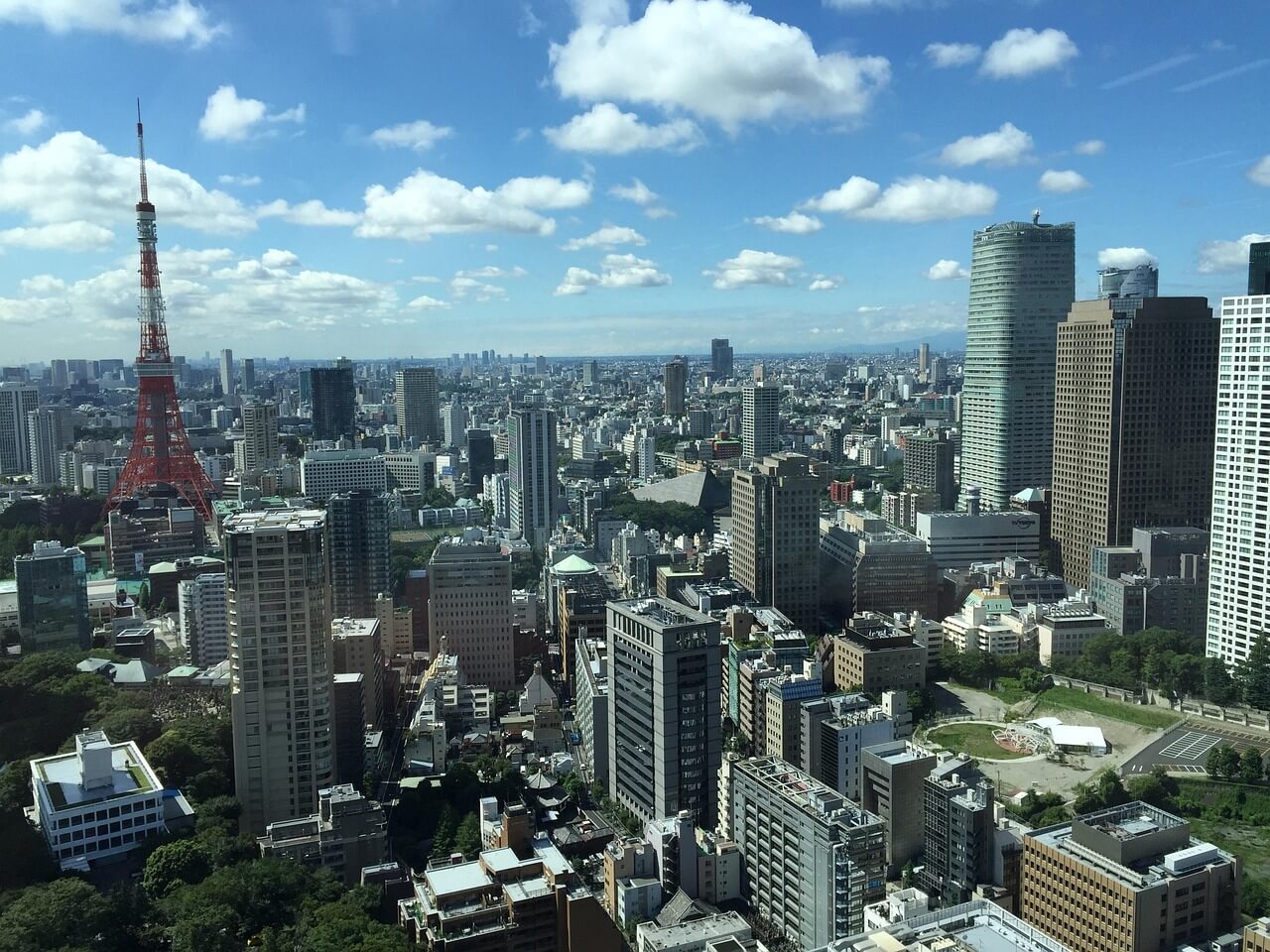When living in Japan as an expatriate, many people may want to “know the process of a rental contract in advance.”
Japan has a unique process for rental contracts, and understanding it beforehand can help you efficiently find a property that suits you.
In this article, we will explain in detail the seven steps of the rental contract process in Japan for expatriates.
We will also provide an example schedule for expatriates signing a rental contract in Japan, so please use it as a reference.
Seven Steps of the Japanese Rental Contract Process for Expatriates

The seven steps of the Japanese rental contract process for expatriates are as follows:
- Consider the requirements you have for an apartment.
- Find a real estate agency that caters to foreigners and make an inquiry.
- View potential properties.
- Apply for the property you like.
- Prepare the necessary documents.
- Receive an explanation of important matters and sign the lease agreement.
- Receive the keys and move in.
Below, we explain each of these seven steps in detail.
Step 1: Consider the requirements you have for an apartment
First, when living in Japan, think about the requirements you have for an apartment, such as the following:
| Location of the property | Access to the nearest stationAccess to your workplaceDistance to supermarketsAvailability of hospitals nearbyProximity to international schoolsWhether it is in a safe areaWhether it is in a quiet residential neighborhood |
| Layout of the property | Size of the roomsNumber of bedrooms |
| Type of property | Whether to choose a high-rise apartment, low-rise apartment, or detached houseWhether it has a concierge deskWhether pets are allowedWhether shared facilities are well-equippedWhether security is thoroughWhether it comes furnishedWhat your budget isAge of the building |
Convenience and safety vary depending on the area, so it is also important to think about your preferred neighborhood.
If you choose an area well-known as a luxury residential district, it will often combine high convenience and safety with a quiet and beautiful environment—something worth keeping in mind when making your decision.
Step 2: Find a Real Estate Agency for Foreigners and Make an Inquiry
Next, search for a real estate agency that caters to foreigners to help you find a property.
With such agencies, you can receive support in English during your property search, allowing you to proceed smoothly with the contract process.
Additionally, many real estate agencies that serve foreigners often have a wide selection of luxury properties, making it easier to efficiently find an apartment that meets your requirements.
For example, Asian Property’s APARTMENTS TOKYO offers a large selection of luxury rental properties in Tokyo and provides English-language support throughout the property search process, enabling you to find the ideal home even if you are unfamiliar with Japan.
Once you have found a real estate agency for foreigners, try contacting them via email or phone.
When making your inquiry, be sure to include the key points you prioritize in your property search so the agency can introduce you to suitable property listings.
Step 3: View Potential Properties
After contacting the real estate agency, visit several of the properties they recommend.
When viewing properties, it is recommended to pay attention to the following points:
- Impression and convenience of the surrounding environment
- Amount of natural sunlight
- Whether the kitchen space is sufficient
- Cleanliness of the bathroom and other water-related areas
- Whether facilities are well-equipped
- Whether security measures are thorough
By imagining your future lifestyle and comparing multiple properties, you will be able to find an apartment that is perfect for you.
Step 4: Apply to Rent the Property You Like
If, after viewing properties, you find one you like, submit a rental application.
A rental application is the process of informing the real estate agency of your intention to rent the property so they can hold it for you temporarily.
When applying, you may be required to provide information such as:
- A phone number you will use in Japan
- A bank account for rent payments
- An emergency contact
Having these prepared in advance will make the process smoother.
Once you submit the application form, the landlord or agency will conduct a screening to verify that you have sufficient financial capability to pay the rent. If you pass this screening, you can proceed to signing the lease.
Step 5: Prepare the Necessary Documents
Before moving on to the contract, prepare the following documents:
- Passport
- Certificate of Employment
- Proof of Income
- Certificate of Authorized Employment Status
The Certificate of Employment—sometimes referred to as an employment verification letter—can be issued by your company upon request.
As proof of income, you may be asked to submit payslips, so check with the real estate agency in advance.
You will also need a Certificate of Authorized Employment Status, which is an official document that confirms the types of work activities you are allowed to engage in under your current visa status.
If you wish to engage in activities outside your visa status, you will need to obtain a Permission to Engage in Activities Other Than Those Permitted (資格外活動許可書), so keep this in mind.
Step 6: Receive the Explanation of Important Matters and Sign the Lease Agreement
The next step is to receive the Explanation of Important Matters and then sign the lease agreement.
The Explanation of Important Matters is when a licensed real estate agent explains all key points related to the lease agreement to the person entering the contract.
During this explanation, you will be informed of important contract details such as:
- Name of the real estate company handling the transaction
- Name of the licensed real estate transaction agent in charge
- Information about the landlord (such as ownership details)
- Building information (including facilities, location, earthquake-resistance inspection results, and hazard map information)
- Contract terms (monthly rent, initial costs, renewal fees, prohibited activities, contract termination, and cancellation details)
- Special terms (property-specific notes or restrictions)
In particular, Japan has many unique lease restrictions, so make sure to ask about anything you don’t understand during the Explanation of Important Matters.
Once you understand the contents and sign or stamp the lease agreement, the contract is complete.
Step 7: Receive the Keys and Move In
After the contract start date, you can receive your keys and move into the property.
You will need to confirm the method of receiving the keys with the real estate agency, but in most cases, keys are handed over in person during the agency’s business hours.
In Japan, you generally need permission from the real estate agency to make a duplicate key, so be careful not to create one without authorization.
On your move-in day, you will also need to arrange to have electricity, gas, and water turned on. Be sure to check with the real estate agency about how to complete these activation procedures.
Example Schedule for Expatriates Signing a Rental Contract in Japan

The example schedule for expatriates signing a rental contract in Japan is as follows:
| Three months before moving in | Make a list of the conditions you require in an apartment.Search for properties on real estate listing websites and make inquiries. |
| Two months before moving in | While living in temporary accommodation in Japan, go on property viewings. |
| One month before moving in | Submit a rental application for the property you wish to rent and prepare the necessary documents. |
| Three weeks before moving in | Pay the initial move-in costs and sign the lease agreement. |
| On the move-in day | Receive the keys and move into the property. |
Even if you find a property you like, it may take more than two weeks to have the unit professionally cleaned, or the tenant screening process may take some time.
Therefore, you should aim to schedule property viewings at least one month before your desired move-in date.
Understanding Rental Contracts in Japan: A Step-by-Step Guide for Expats – Summary

If you are planning to live in Japan as an expatriate, be sure to review the seven-step rental contract process introduced in this article.
For those seeking high-end rental properties in Tokyo that match their requirements, we recommend APARTMENTS TOKYO by Asian Property, which offers a wide selection of luxury rentals across various areas of Tokyo.
Our English-speaking staff can assist you from property introductions and neighborhood guides to providing commuting and school information—ensuring a smooth and stress-free relocation experience. Please feel free to contact us anytime.
Schedule a Free Consultation or Property Viewing
→ Contact Form
Receive Exclusive Property Updates & Special Campaigns
→ Newsletter Signup









